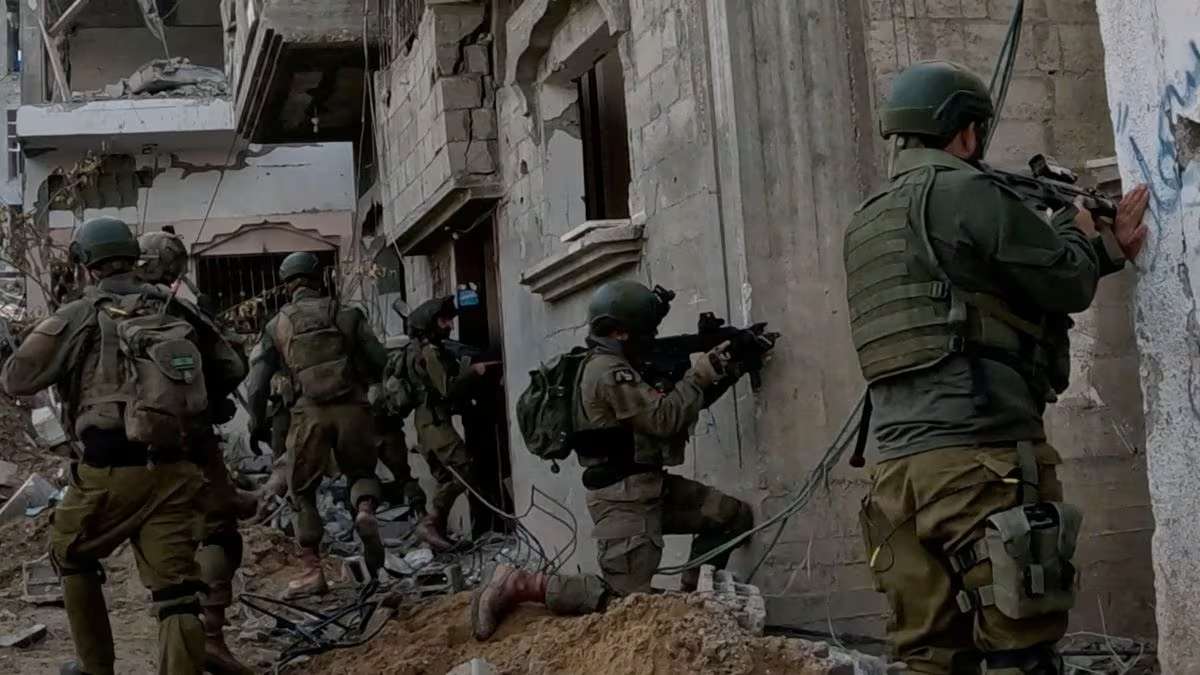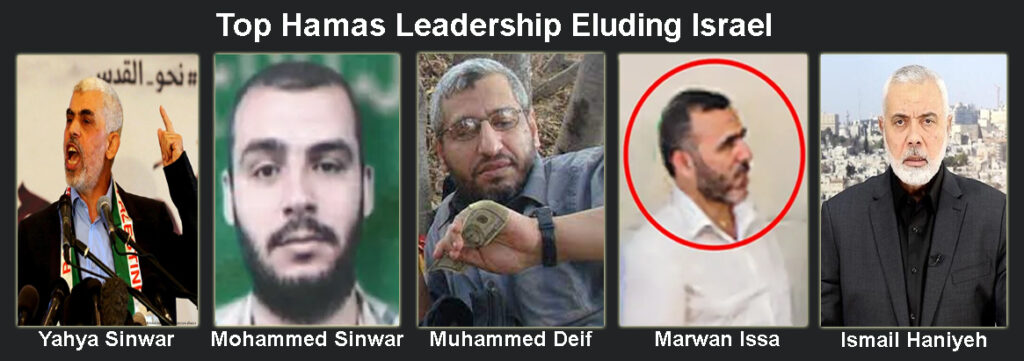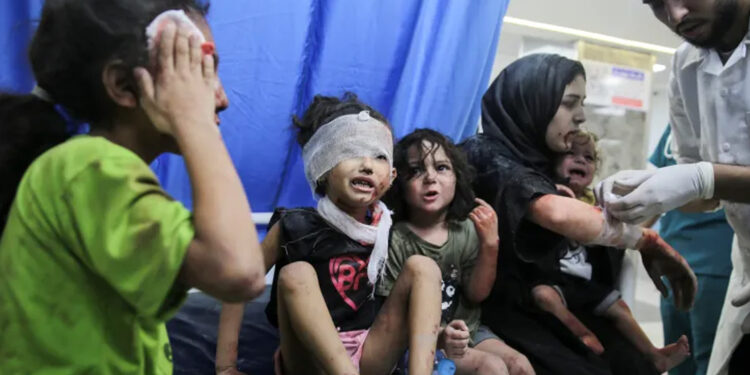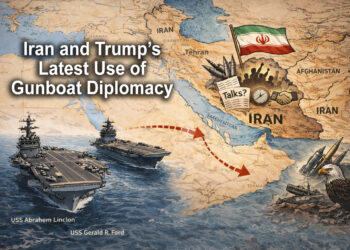by Miceál O’Hurley
JERUSALEM — Opposition and criticism of the way in which Israel is conducting its war against Hamas continues to grow as the death toll in Gaza rises by the hour. Nowhere is this more apparent than the sting of Israel having to defend itself in the International Court of Justice (ICJ), colloquially called ‘The Hague’, against South Africa’s charge Israel is committing genocide against the Palestinian people. While Israel does not recognise the authority of the ICJ it is a signatory of the 1948 Convention on the Prevention and Punishment of the Crime of Genocide, commonly known as the ‘Genocide Convention’. The Genocide Convention was adopted largely in response to the Shoa (holocaust) in which millions of Jews died in the attempted extermination of Jewish people. That Israel itself is now forced to defend itself against charges of genocide carries is anathema to many.
Israel Denies Accusations of Genocide – Complains of Selective Bias
Israel vehemently denies it has engaged in genocide and points to South Africa’s increasingly symbiotic relationship with Russia and China and a desire to embarrass and weaken the West as the underlying motivation for the accusation of genocide. South Africa’s selective claims of genocide are an open secret given their support for Sudanese warlord Mohamed Hamdan Dagalo, known as Hemedti (little Mohamed).

Hemedti, a Janjaweed leader from the Rizeigat tribe in Darfur, has attracted a litany of growing accusations about his own role in what some describe as genocidal acts. His leadership of the 2004 Adwa Massacre in which at least 126 villagers were systematically murdered in a door-to-door pogrom where bodies were burned or thrown in wells in a hasty attempt to hide the crimes made him notorious. Between 2014-2015, Human Rights Watch and other international monitors claim forces loyal to Hemedti acted on his order to burn more than 10 villages killing, torturing, murdering and raping civilians throughout the Darfur region. Hemedti also is accused of recruiting and directing soldiers to commit war crimes and crimes against humanity in Yemen. During the 2023 Sudan War Hemedti is claimed to have continued his pattern of human rights abuses and crimes against humanity. That South Africa has failed to complain about Hemedti and his Rizeigat fightings to the ICJ has featured large in Israel’s levelling of complaints of selectivism and politics in their charges against Israel. Resounding question of the motives of South Africa in their claims against Israel, however, don’t obscure the facts upon which South Africa claims merit their case.
Israeli Government Spokesperson Eylon Levy responded to the accusations levelled by South Africa, saying, “[it is] absurd blood libel, [and] tragic that the rainbow nation that prides itself on fighting racism will be fighting pro-bono for the anti-Jewish racists”. US Secretary of State Anthony Blinken voiced his support for Israel’s position of claiming self-defense calling South Africa’s complaint “meritless”.
Still, other Western leaders that once stood firmly in Israel’s camp have begun to voice wavering concerns about how Israel has prosecuted the war that has resulted in such horrific civilian casualties. Questioned before a Parliamentary Committee this week British Foreign Secretary Lord David Cameron said, “Am I worried that Israel has action that might be in breach of international law, because this particular premises has been bombed, or whatever? Yes, of course“. Speaking to CNN, Slovenia’s foreign minister Tanja Fajon claimed Israel has “definitely” breached international humanitarian law in its war on Hamas in Gaza. “That is clear, and it’s very worrisome,” she said, adding that the world has “failed on tests of humanity”.
South Africa Opens its Argument with Irish Lawyer Seeking Provisional Measures
Irish lawyer Blinne Ni Ghralaigh, one of the team of lawyers representing South Africa, argued passionately before the ICJ Thursday, “There is an urgent need for measures to protect Palestinians in Gaza from the irreparable prejudice caused by Israel’s violation of the Genocide Convention”. The ICJ has long adopted a tradition of acting to protect the rights of civilians during conflicts and grant ‘provisional measures’ prior to rendering its judgment, which could take years. The ICJ could Order Israel to cease its military operations against Hamas in Gaza. Similar provisional measures were imposed in ICJ judgments during previous conflicts such as when the ICJ Ordered Serbia to cease belligerent operations against Bosniaks during the 1990s. In its 1993 opinion the ICJ ruled:
“That Yugoslavia (Serbia and Montenegro), together with its agents and surrogates in Bosnia and elsewhere, must immediately cease and desist from al1 acts of genocide and genocidal acts against the People and State of Bosnia and Herzegovina, including but not limited to murder; summary executions; torture; rape ; mayhem; socalled 'ethnic cleansing'; the wanton devastation of villages, towns, districts and cities ; the siege of villages, towns, districts and cities; the starvation of the civilian population ; the interruption of, interference with, or harassment of humanitarian relief supplies to the civilian population by the international community; the bombardment of civilian population centres; and the detention of civilians in concentration camps or otherwise.”

The ICJ likewise granted preliminary measures to Gambia in their complaint to protect the Rohingya people in Myanmar from genocide. More recently, the ICJ Ordered Russia to stop its military assault upon Ukraine. Israel is expected to resist such measures in its submissions and arguments before the ICJ.
Given its history of acting to provide provisional measure in the hope of deterring harm to civilians experts believe it likely that the ICJ will issue similar preliminary measures with regards to Israel’s conduct of its war on Hamas, now in its third-month, in which the number of Palestinians grows hourly. It remains uncertain if Israel would abide by any similar preliminary measures should the ICJ so Order.
Ni Ghralaigh’s arguments were as concise and unambiguous as they were passionate and persuasive:
“The UN Secretary-General and its officials describe the situation in Gaza as ‘a crisis of humanity’, ‘a living hell’, ‘a bloodbath’, ‘a situation of utter deepening and unmatched horror where an entire population is besieged and under attack, denied access to the essentials for survival on a massive scale’”.
Also arguing on behalf of South Africa, Max du Plessis highlighted that for the ICJ to fail to Order preliminary measures to halt Israeli military operations would be to ignore its own jurisprudence. According to du Plessis, for the ICJ, “… to find otherwise would not only be to treat Palestinians differently, as less worthy of protection than others, it would also be for the court to unduly limit its own competence, to turn its back upon its extensive prior jurisprudence, and to close its eyes to the breach of the rights which lie at the heart of the convention, and which breaches are taking place in Gaza right now”.
Fears for Palestinian Self-Determination – Israel Urges ‘Voluntary Emigration’
Outside of the courtroom international and regional fears abound that beyond its legitimate, stated goal of destroying Hamas Israel is pursuing an un-stated policy of making Gaza ripe for the expansion of Israeli settlements by diminishing Palestinian territorial control if not territorial claims. According to several diplomats in the region not authorised to speak on the record the rhetoric from Netanyahu’s close allies in Government and his ‘War Cabinet’ are promoting mass emigration of Palestinians from their homeland is alarming. Given the context of Israel’s enduring occupation of Palestinian territories it raises fears that Israel plans to eradicate Palestinian self-rule altogether. Israel has yet to articulate its plan for any transition from martial law in Gaza to civilian self-governance by Palestinians. Enduring Israeli occupation seems increasingly likely in the absence of any realistic and durable alternative.
Only last week Israeli Finance Minister Bezalel Smotrich and National Security Minister Itamar Ben-Gvir unequivocally called for the “voluntary emigration” of Palestinians from Gaza. Ben-Gvir claimed the emigration of Palestinians from their homeland would be a “solution” to the humanitarian crisis which has seen in excess of 23,000 Palestinians killed by Israeli forces in the aftermath of the Hamas attack on Israel on 7 October 2023.
Reliable reports estimate some 500,000 Gazans, 85% of its population, are now internally displaced, most permanently. Given the enduring occupation of Palestinian territories by Israel and the lack of pursuit of a 2-State solution to the conflict by successive Governments of Benjamin Netanyahu the lack of condemnation for such suggestions from within the Israeli Cabinet of Ministers seemingly conveys an acquiescence, if not desire, to see the wide-scale dispossession of Palestinians from their ever-dwindling homeland.
Israel’s Stated Goals May Prove Unrealistic
Israel began its full-scale invasion of Gaza with 2 primary, purported objectives — seeing some 240 hostages taken by Hamas and held by various entities in Gaza and possibly Lebanon to be returned to Israel; and, destroying Hamas’ ability to wage war on Israel. Around 130 hostages remain captive following an initial round of incremental prisoner exchanges. Domestically, Netanyahu is facing fierce criticism for his handling of the hostage situation. While Israelis are uniformly supportive of seeing Israeli captives returned home safely there is exponentially growing disappointment in the success of the Netanyahu government in achieving that goal. The situation was exacerbated when Israeli forces mistakenly fired upon and killed 3-Israeli captives despite them holding their hands in the air, waving ‘white flags’ and audibly pleading for help in Hebrew. Former hostages and families of the remaining captives have become more vocal the longer the situation persists.
Some of the most condemning voices regarding Israel’s conduct in its war against Hamas have come from Israeli’s themselves. Former Senior Advisor to Israeli Prime Minister Simon Peres, a past Israeli Labour Party Leader and now noted Haaretz Op/Ed journalist Gideon Levy told CNN’s Christine Amanpour:
“Look, by the time we finish this interview another baby will be killed in Gaza. By the time you will finish your show another 2 women will be killed in Gaza. How long can this last? Israel had the full right to go for this campaign, for this war but there must be limits and we have crossed them so long time ago. But above all, answering your question, where do we aim to? What will it be any better for Israel's security if another 20,000 Palestinians will be killed in Gaza? If another half a million people will lose their homes? What does this contribute for the security of Israel? We have to realise that the goals that Israel had declared are unachievable, or at least partly unachievable. And we should concentrate now about creating a new reality and not killing and killing for the purpose of killing.”
Israel Has Had Some Success in Degrading Hamas
Israel’s military operations meant to destroy if not degrade Hamas have been met with mixed results. Critics claim Israel’s goals were uncertain and unachievable. Some 3-months later Hamas is still launching rockets in attacks upon Israel, albeit at a much lower rate than in October 2023. Hamas militants persist in conducting ambush operations against Israeli forces often using the extensive network of tunnels and arms caches Hamas has built-up over the past 2-decades. While Hamas has undoubtedly paid a high price for its devastating and brutal attacks upon Israelis in October 2023, and Israel has managed to shrink the amount of Gazan territory under the control of Hamas, the sheer scale of collateral damage and the death-toll to Gazans has been horrifying. Even the United States which has been Israel’s most staunch supporter since its founding have cautioned restraint to the Netanyahu Government with little, if any, discernible success.
While not claiming responsibility there is little doubt Israel achieved a substantial and symbolic success when the Deputy Leader of Hamas, Saleh al-Arouri was killed in a targeted airstrike on his base of operations in Beirut on 2 January. In the aftermath of al-Arouri’s killing Israel’s Mossad chief, David Barnea, issued an ominous warning to Hamas adherents, “Let every Arab mother know that if her son took part in the massacre [of October 7] he signed his own death warrant”. Israel is also believed to have been behind the targeted killing of Hezbollah commander Wissam al-Taweel and one of his aides as they travelled in southern Lebanon on 8 January.
- Destroying Hamas Leadership is Proving an Elusive Goal
Still, at least 5 senior Hamas leaders operating in Gaza remain un-touched by Israel’s ground and air operations:
- Yahya Sinwar – 61 years old. Hamas political leader and purported mastermind of the 7 October attacks on Israel that killed approximately 1,200 people, largely civilians, remains at large. Sinwar, who was sentenced to serve 4-life sentences was released by Israel in the 2011 Gilad Shalit/Wafa al-Ahrar prisoner exchange. By 2017 Sinwar had risen to be Hamas’ military leader in Gaza. Following its post 7 October military operations in Gaza the Israeli military dropped thousands of leaflets throughout Gaza offering a reward of $400,000 for information leading to his arrest.
- Mohammed Sinwar – 48-years old. Commander of the Izz ad-Din al-Qassam Brigades, Sinswar is the younger brother of Yahya Sinwar. Aside from commanding one of the largest formations of Hamas terrorists Sinwar has survived at least a half-dozen Israeli assassination attempts. Sinwar is said to have been the primary organiser of the cross-border raid that took captive Israeli soldier Gilad Shalit in 2006.
- Muhammed Deif – 58-years old. Hamas’ chief military commander has reportedly been linked to planning and executing multiple suicide attacks against Israel is recent years. Of late, Deif is suspected of overseeing Hamas’ internal weapons development and manufacturing, rocket attacks operations and being the chief planner of its tunnel warfare activities. Deif, who has been a staple of Israel’s most-wanted list has survived or escaped multiple targeted assassination attempts by Israeli forces. He has claimed some responsibility for planning the 7 October attacks on Israel.
- Marwan Issa – 58 years old. Deif’s Deputy and Hamas second most senior military commander, Issa has maintained a close security cordon to insulate himself and Hamas terrorist operations from detection. Issa was a famed athlete earning a reputation as a star basketball player before being arrested by Israel. Issa is reported to have been instrumental in orchestrating the 2011 Gilad Shalit/Wafa al-Ahrar prisoner exchange with saw some 1,027 Palestinian prisoners released including at least 280 serving life sentences for their roles in planning and carrying-out deadly terrorist attacks upon Israel.
- Ismail Haniyeh – 61-years old. Now resident in Qatar, a former plasterer employed in Israel, Haniyeh become the personal assistant of Hamas founder Sheikh Ahmed Yassin prior to rising to the leadership of Hamas’ politburo. He remains an active, leading opponent of Israel. Deported to Lebanon in 1992, Haniyeh returned to Gaza some 18-months later and resumed his role with Hamas. He has been a sharp critic of Palestinian Authority leader Mahmoud Abbas and since 7 October polls have shown Palestinians increasingly trust Haniyeh over other Palestinian political leaders.
Palestinian Civilians Have Paid Disproportionate Price – Famine Looms
Civilians have paid a disproportionate cost in the aftermath of Hamas’ 7 October attacks on Israel and the launch of Israel’s military operations in Gaza. Driving escalating scepticism of Israel’s near-term goals for the administration of Gaza is its near total destruction of critical civilian housing and infrastructure. In its pursuit of Hamas Israel has prosecuted the war in such a way that has rendered Gaza almost uninhabitable all while keeping some 590,481 Palestinians hemmed-in with scant food, water, medical care, electricity or communications. According to United Nations Emergency Relief chief Martin Griffiths, “famine is just around the corner” with Palestinians in Gaza facing the “highest levels of food insecurity, ever”. Last Friday, Griffiths described Gaza as “a place of death and despair”.
Last week Israel announced it plans to “scale back” its military operations in Gaza. It remains uncertain what exactly this means, nor is it understood how or if Israel’s changing military activities would in any way change the metrics on the ground that maintains the current humanitarian suffering of the Palestinian people.
To date, Israel has boasted its success in deteriorating Hamas’ belligerent capabilities to continue to kill Israelis, however, the means by which it has done so that has wrought such misery in Gaza has come under sharp international criticism. Israel’s use of antiquated “dumb bombs” to which significant collateral damage and death of civilians has been attributed has surprised if not shocked the world. While maintaining its right of self-defence given the aftermath of the 7 October attacks upon Israeli settlements and citizens, attacks marked by unspeakable brutality including beheadings, torture, rape and wanton violence upon vulnerable persons, Israel has failed to achieve its legitimate military objectives without inordinate civilian death and suffering.
Israel claims it has tried to meet its obligations as a State to act in the best way possible to safeguard civilians. Conversely, there is no indication that Hamas has even attempted to do the same. The sympathy and understanding the poured out for Israel in the aftermath of Hamas’ 7 October assaults has dissipated with only scant recognition or mention of the means by which Hamas conducted those operations or have resorted to using Palestinians as human shields or hiding military operations amongst critical civilian infrastructure since. It is the burden of Statehood that none-the-less holds Israel to a higher standard than a terrorist organisation such as Hamas. Hamas has relied upon the inordinate death toll of Palestinians to marshal public opinion against Israel even if not for themselves.
While non-State actors like Hamas hold themselves aloof of international conventions that govern the conduct of warfare Israel has increasingly blurred the lines between the legitimacy of self-defense with accusations of war crimes and the unnecessary use of force against Palestinian civilians, infrastructure and fundamental human security. Consequently, Israel’s relationships within the region that had recently been elevated by the Abraham Accords are at best tenuous at the moment.
With no end-game in sight for how Gaza will be governed once Israeli military operations end the fear that the Gaza strip will be governed entirely by Israel under martial law if not an end to Palestinian self-government essentially being terminated is an outcome that looms large in the minds of the international community. With Netanyahu’s governments successively having degraded the Palestinian Authority over the past two decades all while tacitly allowing money to flow from Qatar and other quarters to Hamas, there are few domestic alternatives readily apparent for the near-term governing of Gaza. The leadership of the Palestinian Authority are loath to be characterised as an Israeli dupe should they be asked to take on governance of Gaza at the end of Israeli combat operations and regional partners voicing their unwillingness to step into the role there seems nothing but uncertainty about the Palestinian’s future in Gaza. Any hopes of a 2-State solution being implemented seem fleeting at best with both Israelis and Palestinians hardening their positions about the prospect of a peaceful coexistence in the near-term. Only 28.2% of Israeli Jews believe peaceful co-existence with the Palestinians is possible and 75% of Palestinians believe Israelis would never accept peaceful co-existence with an independent Palestinian State.
Potential for Regional Spillover
All this is made much the worse by escalating regional tensions. While Hezbollah and their partner Iran have claimed they have no desire to see a regional widening of the conflict recent Israeli attacks upon Hamas leadership in Lebanon resulting in the death of Hamas and Hezbollah leaders have raised tensions. Likewise, Iranian-aligned Houthi attacks from Yemen on Red Sea shipping has created significant concern. Only last week a terrorist attack by ISIS in Kerman, Iran which was originally blamed on Israel highlighted just how volatile the region and conflict has become. Fears the conflict could widen for a multitude of reasons, not all directly related to the aftermath of the 7 October attacks on Israel and the subsequent military action taken by them in Gaza make the region a tinder box ready to ignite.
Sporadic attacks between Hezbollah in Lebanon and Israel have at times tested the temperament of regional actors. Houthi attacks on international shipping saw the US and Great Britain join 15 other nations in warning the Houthis that the continued shipping attacks would not be tolerated. In the early hours of Friday and again Saturday the US and UK conducted significant strikes against Houthi insurgents in Yemen. The Houthi, supporters of Palestinians and known enemies of the survival of the State of Israel, have sworn retaliation.
While Jordan and Saudi Arabia acknowledged the underlying tension in the region being the Israel-Hamas war each has preached caution without condemning the US and UK strikes. Iranian spokesperson Nasser Kanaani was far more blunt about the US and UK strikes, saying, “These attacks are a clear violation of Yemen’s sovereignty and territorial integrity, and a breach of international laws.”
















































